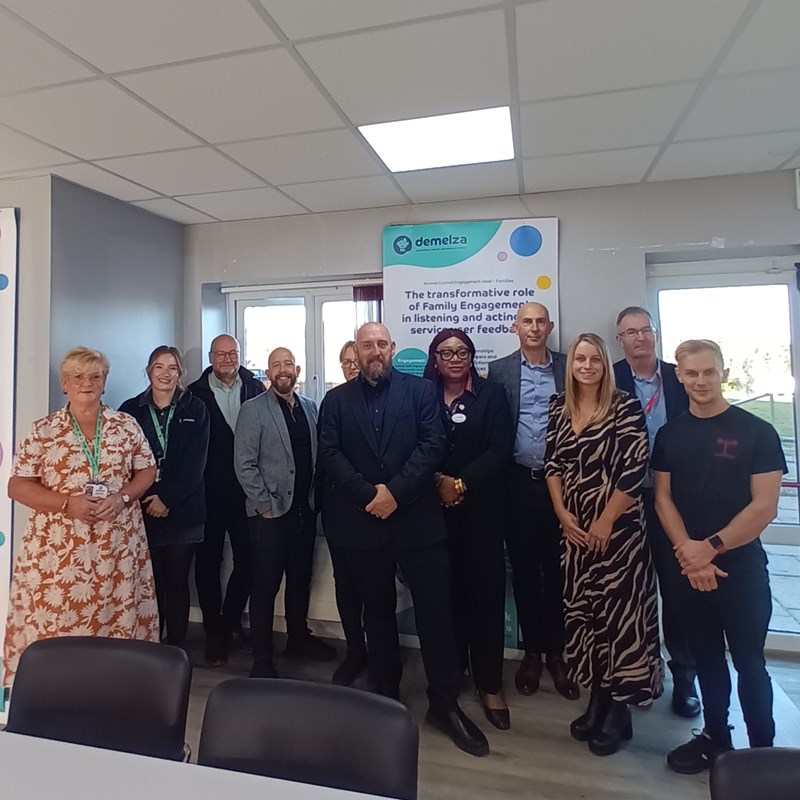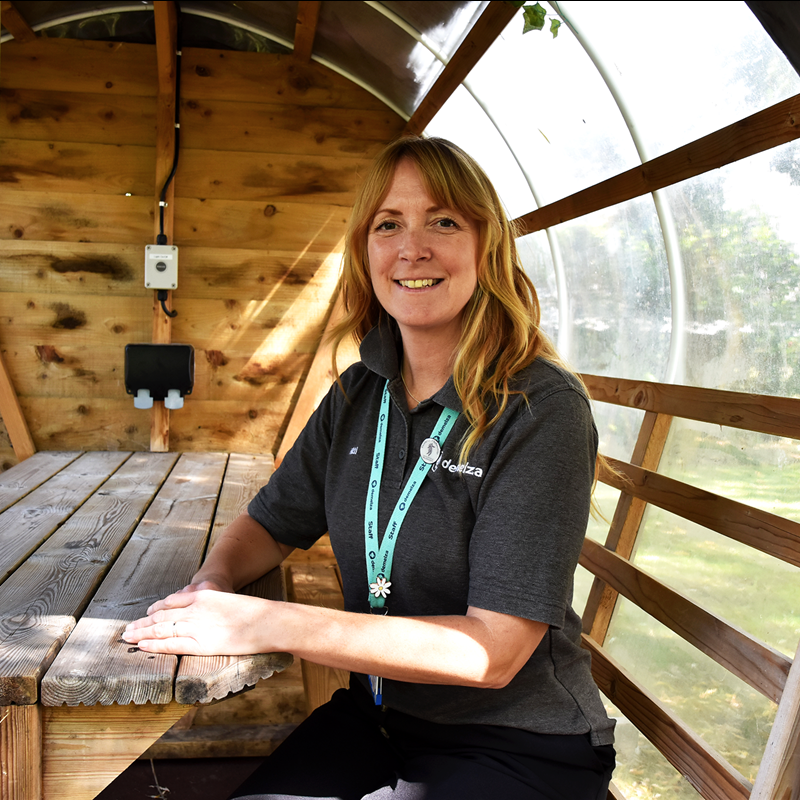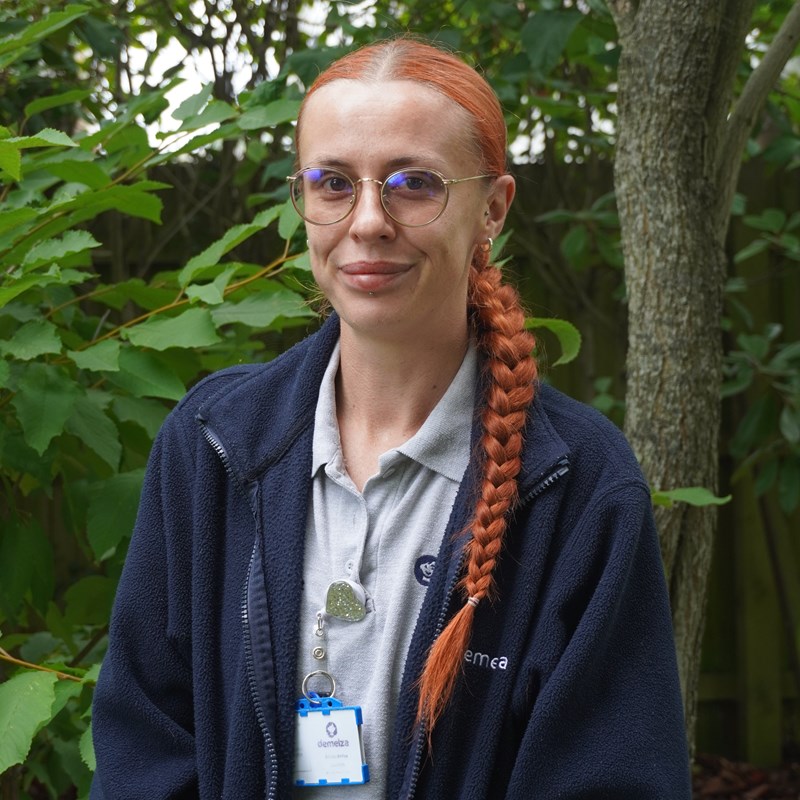As part of Mental Health Awareness Week we're highlighting the ways in which Demelza advocates and supports good mental health; for families, staff and volunteers.
Demelza’s ‘wobble room’ was created at the height of lockdown in April last year. Back then, little was still known about COVID-19 and while the majority of the country was plunged in to a life surrounded by their own four walls to stop the spread of the virus, staff at the hospice in Sittingbourne were coming in as usual, although dressed head to toe in full PPE, to work with our children and families.
Helen Rolls, Lead Nurse in Sittingbourne, says: “staff were scared, apprehensive and the pressure on an individual’s mental health was extreme – I wanted to create a safe space where the team could get away from what was going on in the world. empty their minds and just ‘be’”. And so the 'wobble room' was born – a safe space in a quiet spot in the hospice where staff could relax on mats, cushions, comfy chairs, snuggle in cosy blankets, dim the lights, play music and inhale aromatherapy oils, escaping the pressure of the pandemic for a short while and recharging batteries.

The ‘wobble room’ has been such a success that it will remain in place for staff to unwind in. Helen says “being able to get away, even for a short while, helps with your mental health armour – spending time in the wobble room soothes the soul – it’s like putting on psychological PPE”.
Latest news

Demelza provides space for Business Breakfast hosted by local MP Kevin McKenna
Demelza welcomed in local business representatives for a breakfast networking event hosted by Sittingbourne and Sheppey MP Kevin McKenna.

Childhood Cancer Awareness Month: Calming care for children with cancer
At Demelza, we support children facing cancer with care that tends to all aspects of their wellbeing. This Childhood Cancer Awareness Month, we caught up with Nicola Fischer, one of our complementary therapists, to explore how complementary therapies can be tailored to soothe, relax and uplift children with an oncology diagnosis.

International Day of Charity: Healthcare Assistant Amy’s extraordinary expedition
This International Day of Charity, meet Amy - a Demelza healthcare assistant tackling the heights of Everest in aid of children and their families.